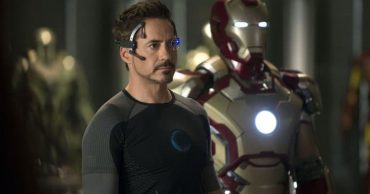
Things don’t always turn out the way they do in your head. Case in point: this article was originally supposed to be called “Alien Covenant Required Reading: Prometheus.” Then I rewatched Prometheus and decided that I didn’t want to force that movie on anybody else, Alien: Covenant be damned.
I don’t know why it didn’t all click into place when I saw it in theaters five years ago. Not that I ever went so far as to call Prometheus “good,” but I was enough of an apologist to give it a dismissive wave of the hand at worst. Maybe it’s because it was coming off the abject failures of Alien 3 and Alien Resurrection, or maybe it’s because franchise founder Ridley Scott had finally returned to direct the franchise after more than thirty years away.

Whatever the reason, it all came back to me with a vengeance when I watched it again tonight. Prometheus isn’t just a bad movie, it’s a bad Alien movie.
It’s worse than Alien 3 killing all off most of the last movie’s surviving cast. It’s worse than Ripley’s hybrid-Xenomorph baby in Alien Resurrection. It’s even worse than anything Alien vs Predator did to the franchise. And at this point I have no idea if Alien: Covenant — a movie that I’m still ecstatic to see — can live down having to follow up that kind of dreck.

There are many reasons to hate on Prometheus. Despite the franchise featuring one of the most iconic heroines in all of cinema, the latest installment showed nothing but contempt for its female characters: directing frequent and utterly baffling sexism toward mission commander Meredith Vickers and reducing its nominal lead, archaeologist Elizabeth Shaw, to her ability to conceive a child. Although a cornerstone franchise in both the science fiction and horror genres, it prominently features the most tired clichés of either. Despite bringing up all the “big questions” that science fiction is supposed to ask, it answers none of them over its more than two-hour runtime.
Without question, however, its most grievous transgression was failing to adhere to franchise’s own internal logic. Rather than continuing to present the Xenomorph as an apex predator that clawed its way to the top of the food chain over countless generations of evolution and biological appropriation, it retcons it all with a forced Intelligent Design narrative that makes even less sense than its real-world counterpart.

According to the film, Humans were manufactured by a species known as the Engineers, the “space jockeys” seen on the derelict alien ship in the first movie. They seeded life on Earth using their DNA — which despite their innumerable physical differences to us, is supposedly identical to our own — and then jetted off to parts unknown, implicitly to repeat this process throughout the universe.
At some point, however, they changed their minds. They set course for Earth with a biological contagion, intent on killing off the very being they created millennia prior. Just before they could carry out those plans, though, they all died, save for a final soldier kept alive in cryo-stasis, who single-mindedly attempts to carry on his mission after being awoken.

The problem with trying to force this version of events onto the Alien franchise is that it flies in the face of everything that we had come to expect from it until that point. It mythologizes minor elements in the first movie that were never intended to be anything other than foreshadowing. The so-called “Engineers” were just corpses of a long-dead alien species that locked horns with the Xenomorphs centuries prior only to fall to their biological superiority. They were ornamentation that suggested the scale of what the Human characters were dealing with: nothing more.
Prometheus altered the conversation of the franchise so fundamentally — and so poorly — that I honestly can’t say if Alien: Covenant can bring it back to the basics: to what made the franchise so memorable and important to begin with. This is especially true given that Ridley Scott is returning to direct the upcoming sequel.

You see, Alien: Covenant isn’t just another Alien movie; it’s a direct sequel to Prometheus. Although the trailers show incredible promise, they also suggest the same kind of half-hazard, “aliens as God” world-building that drowned out its predecessor, such as when the protagonists ask “what are the odds of finding Human vegetation this far from Earth.” It also seems just as concerned as Prometheus was at giving us proto-Xenomorphs — “missing links” that predate the 1979 movie’s titular monster — when all anybody wants is the real thing.
Although I am hopeful that Alien: Covenant is a back-to-basics prequel to the original movie, I’ll be going in to it with guarded hopes. Maybe what this franchise needs is some fresh blood behind the camera.
 Follow Us
Follow Us





